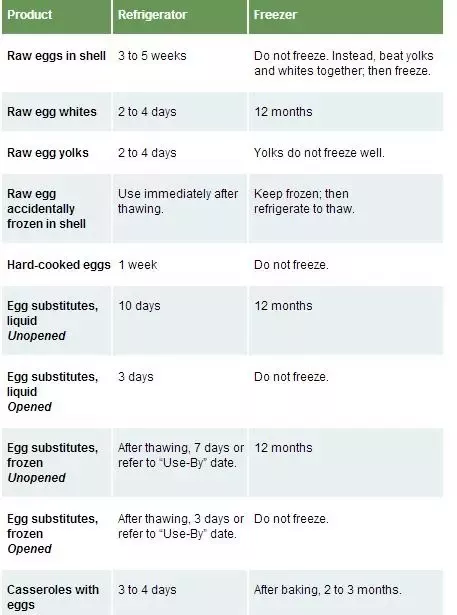A Comprehensive Guide to Storing Egg Whites for Parents
Introduction
Hello, happy nesters! Are you wondering about the longevity of stored egg whites in your lovely kitchen? Well, you’re at the right place! As busy parents, managing the food quality and safety for your beloved family can often feel like a juggling act. Your kitchen is probably chock-a-block full of perishable and non-perishable items, and there might be that one question bugging you late at night: how long can you store egg whites? Never fear! We’re here to crack down the answer!
Understanding Egg Whites
Before we delve into the intricacies of storing egg whites, let’s first understand what we’re dealing with. Egg whites, also known as the albumen, make up around 67% of an egg’s weight. They are a high-quality source of protein and contain no fat – all the more reason why their consumption should be a part of your family’s diet.
Why Save Egg Whites?
Egg whites often find themselves left alone after a baking project that only required yolks or during preparation of cholesterol-free dishes. Some families opt to separate egg whites and yolks due to dietary reasons. Regardless of the reason, it’s a great idea to store these nutritious, versatile whites for later use without wasting them.
How Long Can You Store Egg Whites?
Now, let’s get onto the million-dollar question: How long can you store egg whites?
The storage duration varies according to where you’re storing them and under what conditions. So, it’s crucial to understand the best practices for proper storage and to ensure optimal freshness for each scrumptious egg-white meal your family will enjoy.
Stay tuned for our comprehensive egg white storage guide, filled with detailed insights and pro tips perfect for every busy parent! Whether it’s for a quick sunny-side up breakfast before school, a rich meringue for the weekend, or a high-energy post-workout snack for you, we’ve got you covered. Now let’s make your egg white storage journey as smooth and as easy as cracking an egg. Join us as we continue our venture on providing you the best and the freshest way of keeping those nutritious egg whites handy in your kitchen!

Fresh Egg Whites Storage
Did you know, if handled properly, fresh egg whites can last as long as seven days in your refrigerator? Here’s how:
Refrigerator
After separating egg whites from the yolks, promptly place the whites in a clean, covered, air-tight container. Keep the container in the coldest part of your refrigerator (usually the back), away from the door. The constant opening and closing of the door can alter the temperature and potentially hinder the freshness of the egg whites. Remember, the key here is to ensure your refrigerator maintains a constant temperature of 40°F or lower.
Frozen Egg Whites
For a longer shelf-life, freezing egg whites is a fantastic option! You can store them for up to 12 months without losing any of the nutritional value or flavor!
Freezer
To freeze, pour the egg whites into individual ice cube trays or muffin pans to freeze them and then transfer the frozen cubes to a freezer-safe bag. Make sure to mark the date on the bag to keep tabs on how long they’ve been in the freezer. For a defrosting strategy, transfer the needed egg white cubes to the refrigerator the night before you plan to use them. Thawed egg whites work just as well as fresh for most recipes.
Storing Packaged Egg Whites
What about store-bought, packaged egg whites? Once opened, the carton should be refrigerated and the contents used within seven days.
Conclusion
So there you have it, happy parents! With these practical steps, you never have to worry about wasting any of that precious, nutritious, protein-packed egg whites again. Here’s to whipping up healthy and delicious dishes for your family with properly stored egg whites. Don’t forget, each egg white stores more than just protein – it holds the love and care you put in every meal prep for your family!
Guidelines on How Long You Can Store Egg Whites
Egg whites have abundant nutritional value and versatility, making them a commonly-used ingredient. If you have leftovers, it’s important to store them properly. Here are 5 things every parent should know when it comes to storing egg whites.
1. Freshness is Key
Fresh egg whites when stored properly in the refrigerator can last up to two to four days. Make sure the container is tightly sealed to prevent exposure to other food flavors.
2. Freezing for Long-Term Storage
If you wish to store egg whites for a longer period, you can freeze them. Properly frozen and stored egg whites can be used up to 12 months. Divide them into ice trays for easy usage.
3. Thaw Before Use
Always remember to thaw your egg whites before using them. Leave them in the refrigerator overnight for best results. Avoid microwaving or using hot water as it can partially cook them.
4. Storage Containers Matter
For storing, use food-grade plastic containers, glass or stainless steel. Avoid copper, iron, or materials that can oxidize, as egg whites can react to these materials.
5. The Sniff Test
Trust your senses. If the egg whites smell foul or look off-color, even within the storage time, it’s better to discard them to ensure food safety.
In conclusion, proper storage and handling can extend the shelf-life of egg whites, thus reducing waste and saving money. Always prioritize safety first to enjoy the benefits of this nutritional powerhouse.
For more great articles please see here. For more information see here
Disclaimer
The articles available via our website provide general information only and we strongly urge readers to exercise caution and conduct their own thorough research and fact-checking. The information presented should not be taken as absolute truth, and, to the maximum extent permitted by law, we will not be held liable for any inaccuracies or errors in the content. It is essential for individuals to independently verify and validate the information before making any decisions or taking any actions based on the articles.




